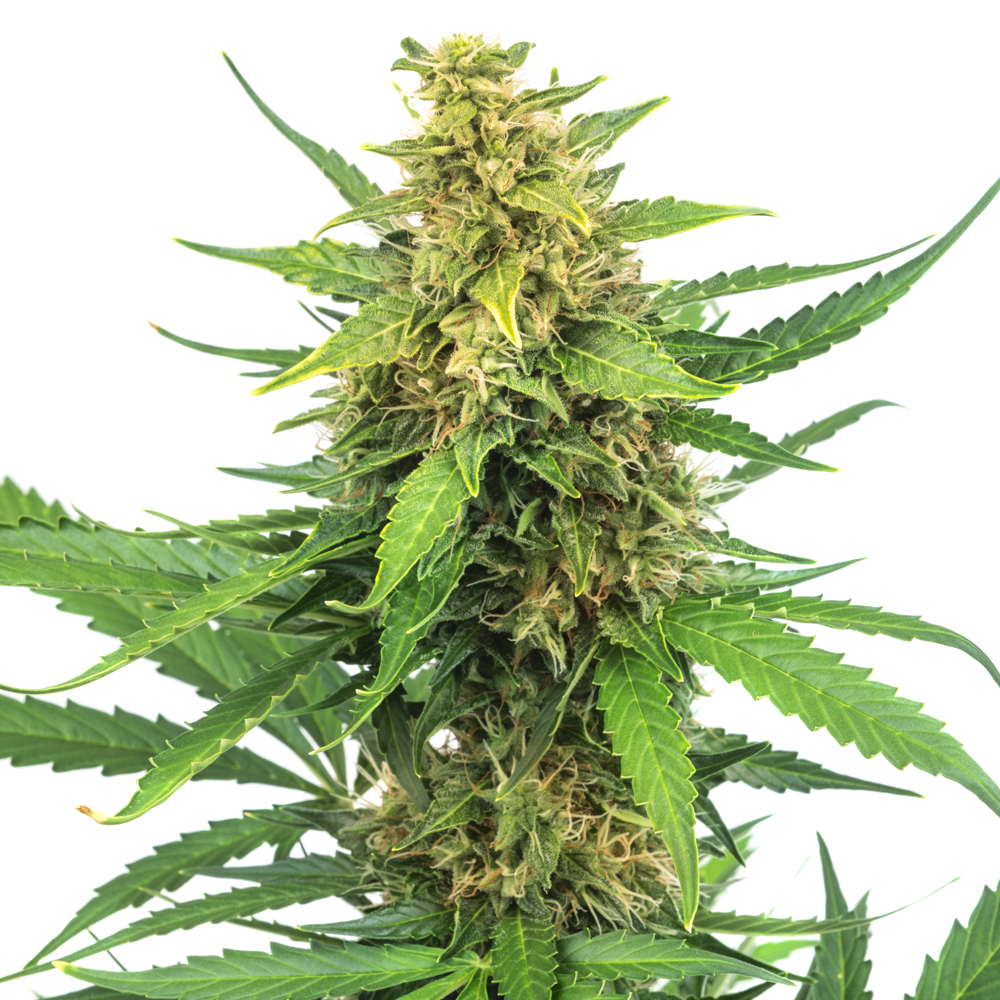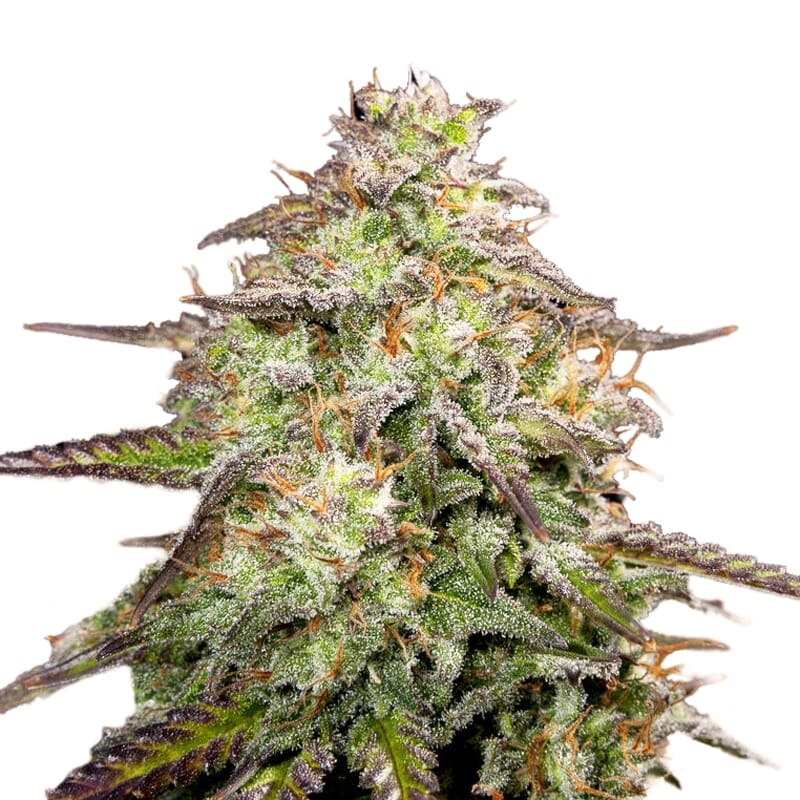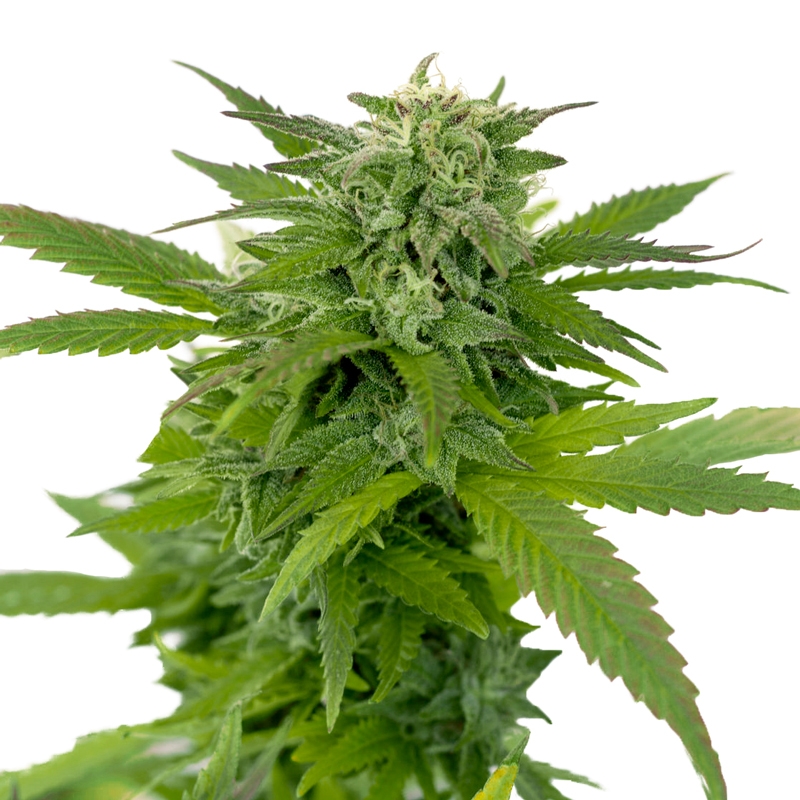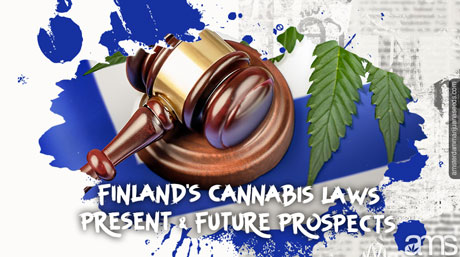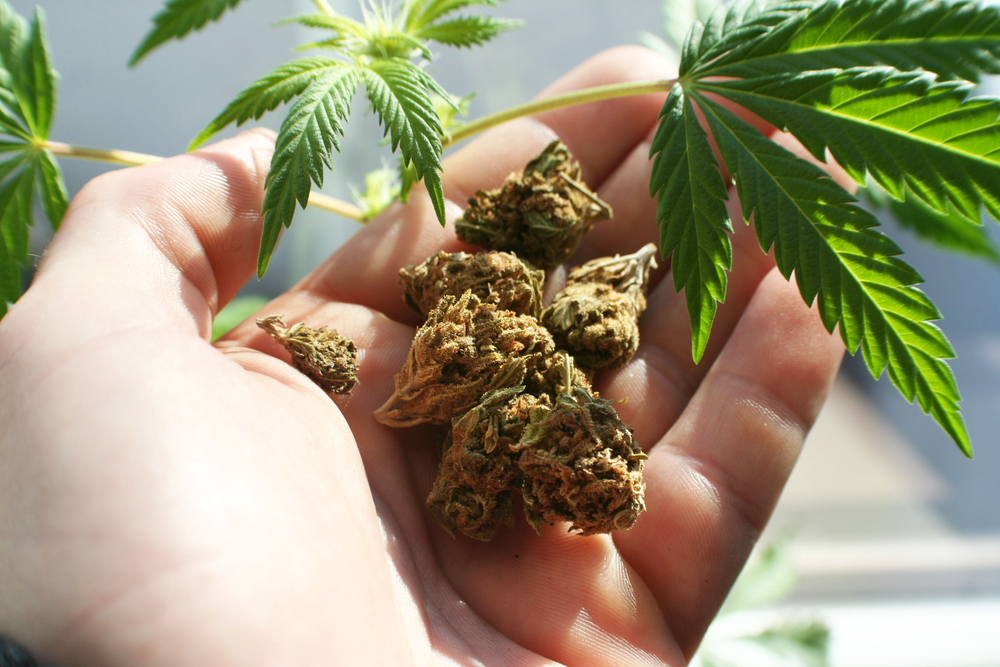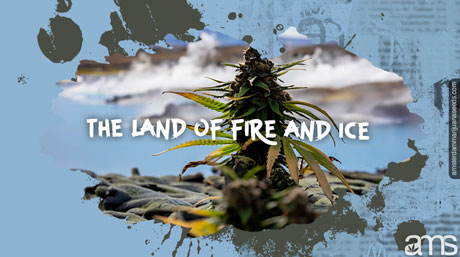Welcome to the captivating world of cannabis, CBD, and HHC in Sweden!
While the legal landscape may seem restrictive at first glance, many wonder is weed legal in Sweden? Let’s embark on an in-depth journey through the green horizons of Sweden, where cannabis regulation shows that cannabis is predominantly illegal but CBD and HHC offer intriguing possibilities for enthusiasts and curious minds alike.
In Sweden, cannabis is illegal for all purposes. The recreational use of cannabis is strictly prohibited, and even possession of small amounts can result in criminal charges. However, it’s important to note that Sweden allows limited medical usage of cannabis-based drugs for specific conditions. This opens up opportunities for individuals in need of medical cannabis to obtain it from pharmacies. The best part is that all healthcare in Sweden is free, making medical cannabis accessible and affordable for those who require it. So, if you’re asking yourself, is weed legal in Sweden, the answer is clear but nuanced.

Embark on a Green Adventure in Sweden
While Sweden is known for being the land of IKEA, meatballs, and ABBA, it’s also a country navigating the complex realm of cannabis legality, including CBD and HHC. Many ask, is weed legal in Sweden? Let’s put on our detective glasses and delve deeper. Who knows? We might even bump into the Swedish Chef from The Muppets making cannabis-infused meatballs!
Now, let’s dive into the realm of CBD products. The good news is that is weed legal in Sweden when it comes to CBD derived from industrial hemp with no traces of THC, the psychoactive compound in cannabis. This means individuals can explore the potential therapeutic benefits of CBD without running afoul of the law. CBD has gained significant popularity worldwide for its various potential benefits, such as pain relief, anxiety reduction, and relaxation promotion. Whether you’re interested in CBD oils, edibles, topicals, or other CBD-infused products, Sweden offers a wide range of options to cater to diverse preferences and needs.
Sweden’s stance towards CBD has opened doors to an array of products, much like the countless aisles in an IKEA store. But instead of Billy bookcases and Poäng chairs, we have CBD oils, capsules, edibles, and topicals. Many Swedes are exploring the possible benefits of CBD, using it for stress relief after a long day of assembling IKEA furniture, or to wind down after an ABBA dance marathon.
The Swedish city of Gothenburg, also known as “Little London,” with its blend of modern design and rich history, is home to a thriving CBD market. Here, you’ll find stores filled with different CBD products, each catering to unique needs. Just imagine stepping into a quaint shop in the Haga district, looking at beautifully packaged CBD products, feeling a bit like a kid in a candy store. However, instead of licorice and gummy bears, you find CBD oils, balms, and gummies!
What about HHC – Hexahydrocannabinol?
HHC is a less known cannabinoid, that is legal to sell and consume in Sweden. While HHC occurs naturally in cannabis, it can also be processed from compounds found in legal hemp plants. What sets HHC apart is its psychoactive effects, which are more potent than CBD. However, like CBD, HHC shares therapeutic properties such as analgesic, anti-inflammatory, anti-seizure, and even anti-cancer effects. For those seeking a slightly stronger experience than CBD alone, HHC presents an intriguing alternative.
With its more potent psychoactive effects, HHC might just be the perfect companion for the brave souls venturing out into the cold Swedish winters. Can you imagine wrapping up in your warmest clothing, the Northern Lights dancing across the sky, and a hot cup of HHC-infused tea in your hands? Talk about a magical Scandinavian experience!
In the charming coastal city of Malmö, known for the Turning Torso, Scandinavia’s tallest building, and its wonderful mix of traditional and modern architecture, we find a growing interest in HHC. Despite its lesser-known status, HHC is turning heads faster than a meatball rolling off a plate. Perhaps it’s the stronger effects, the potential therapeutic benefits, or simply the intrigue of trying something new, much like tackling the assembly of a complicated IKEA wardrobe.
If you’re wondering is weed legal in Sweden, the answer is complex but clear. While recreational cannabis remains illegal, the growing market for HHC is creating a legal gray area that many are exploring cautiously. Knowing is weed legal in Sweden is crucial if you plan to engage with cannabis or its derivatives in any way.
Now, let’s take a moment to appreciate the beauty of the various regions and cities in Sweden. From the vibrant streets of Stockholm, the capital city, to the serene landscapes of Gothenburg and the coastal charm of Malmö, Sweden offers a plethora of picturesque locations waiting to be explored. Whether you choose to indulge in cannabis, CBD, or HHC, it is important to understand exactly is weed legal in Sweden to ensure you stay within the law and enjoy your experience safely.
Within the European legal and regulatory framework, the European Medicines Agency (EMA) defines and classifies cannabis-based products into three distinct categories:
1. Medicinal product derived from cannabis: These are products that, like other plant-derived medications, may contain isolated active substances, plant-based substances, or plant-based preparations, with specific quality standards. These preparations are often complex and have their own regulations.
2. Herbal substance-based: This includes typical herbal substances derived from cannabis, such as flowers (Cannabis flos) or resin (Cannabis resin), as defined in Directive 2001/83/EC and the European Pharmacopoeia monograph on herbal substances.
3. Herbal preparation-based: This encompasses crushed or powdered substances, tinctures, extracts, essential oils, expressed juices, and processed exudates derived from plants.
The question many ask is is weed legal in Sweden under these regulations? The safety and efficacy of these substances depend on the composition of individual cannabinoids, such as the ratio between Δ9-tetrahydrocannabinol (THC) and cannabidiol (CBD), leading to the recognition of three distinct groups of products.
In the European Union, medicinal products intended for human use can obtain authorization through different procedures, either through a centralized process or through national authorities via mutual recognition, decentralized, or national procedures. To apply for marketing authorization, laboratories must submit documentation supporting the quality, safety, and efficacy of the product. This documentation must comply with the regulations established in Directive 2001/83/EC and follow relevant scientific guidelines, as well as the legal basis chosen by the applicant.
Specifically for cannabis-derived products, Good Agricultural and Collection Practices (GACP) and specific scientific guidelines for herbal substances must be taken into account, which are usually detailed in individual monographs of the European Pharmacopoeia or in pharmacopoeias officially used in EU Member States. These monographs provide detailed information on the definition, description, identity, purity,
Learn more about HHC and its effects
If you’re curious about is weed legal in Sweden and want to understand the role of HHC better, this comprehensive guide on Healthline offers a clear and trustworthy explanation. It covers what HHC is, its psychoactive effects, potential benefits, and the current scientific research surrounding this lesser-known cannabinoid. This resource can help you stay informed about emerging trends related to cannabis, CBD, and HHC in Sweden and beyond.
and dosage assays of herbal substances, helping clarify the regulatory stance on is weed legal in Sweden.
Legal Status of Cannabis and CBD in Finland, Sweden, and Norway
The Scandinavian countries are known for their strict cannabis policies. If you are wondering is weed legal in Sweden, the answer fits within these rigorous regulations. How is CBD regulated in these countries, and are there any changes on the horizon similar to other parts of Europe? To answer these questions, we consulted an anonymous source residing in Finland.

Is CBD legal in Finland, and if so, in what forms and under what laws? And what about other Scandinavian countries?
CBD is not legalized for consumption in Finland, though its sale is allowed in products like cosmetics and scented bags. Cosmetic CBD products such as creams and drops are common, but edibles are prohibited. Some stores in major cities, mainly Helsinki, sell CBD flowers, but these cannot be marketed for smoking or vaping. The situation in Sweden and Norway is similar, with uncertainty about the legality of CBD flowers. When considering is weed legal in Sweden, this ambiguity also affects CBD flower sales.
Does this mean it is legal to sell CBD-rich flowers with less than 0.3% THC in Finland, but customers cannot consume them?
The legal THC limit in Finland is 0.2%. Although the law is unclear about the sale of hemp products below this threshold, authorities currently do not oppose it. However, pending legal cases related to CBD flowers slightly exceeding this THC limit have sparked controversy. For those asking is weed legal in Sweden, such legal nuances highlight the complexity surrounding cannabis regulation in Scandinavia.
How many CBD stores are there in major cities?
For example, downtown Helsinki has fewer than ten CBD stores, with most located in the capital city. If you’re researching is weed legal in Sweden, it’s useful to know that similar market dynamics apply to other Scandinavian cities.
What is the estimated cannabis or CBD product usage among Finns?
Official statistics are lacking, but it is estimated that usage varies from a few thousand to tens of thousands of people. This growing interest ties into the broader question of is weed legal in Sweden and how public perception evolves in the region.
What is the policy on recreational cannabis in Finland and other Scandinavian countries?
In all these countries, possession of cannabis with high THC content for recreational use is punishable by fines, even in small amounts. In the capital region, possession under 10 grams is fined without judicial intervention, while in less populated areas, penalties are stricter and often require a court hearing. Production and trade in larger quantities can lead to imprisonment. This strict approach answers the common query: is weed legal in Sweden? It is not, and enforcement is serious.
How is the prevalence of THC use— is it increasing or decreasing?
The use of high-THC products, such as cannabis flowers, has significantly increased over recent decades, especially among youth, and this trend is expected to continue. Most flowers on the market are locally grown in Finland. Those wondering is weed legal in Sweden should also consider similar consumption trends across Scandinavia.
Has cannabis legalization, medicinal or recreational, been discussed politically in Finland?
The legalization of cannabis has not been debated at the highest political levels in Finland. This political climate reflects the ongoing strict stance on cannabis, including the clear answer to is weed legal in Sweden — it remains illegal recreationally.
Is medicinal cannabis legal in Scandinavia, and how is it viewed in practice?
Medicinal cannabis is legal in Scandinavian countries but remains uncommon due to doctors’ reluctance to prescribe it. In Finland, obtaining a prescription is notoriously difficult, and authorized products are limited, such as Sativex spray. In rare cases, Bedrocan flowers have been prescribed. In Denmark, where medicinal cannabis cultivation has been allowed since 2018 under license, the number of prescriptions issued remains low due to medical skepticism. Understanding these practicalities is essential when addressing the question is weed legal in Sweden and its medicinal exceptions.
While cannabis remains largely illegal for most purposes in Sweden, the question is weed legal in Sweden often arises among curious users. The country has embraced the legality of CBD products and HHC. Medical cannabis is available through pharmacies at low or no cost, thanks to Sweden’s free healthcare system. CBD provides a legal avenue for those interested in exploring its potential therapeutic benefits, while HHC offers a slightly stronger and psychoactive experience. However, it’s essential to stay informed about the current laws and regulations regarding cannabis, CBD, and HHC in Sweden, as they may evolve over time.
If you’re wondering is weed legal in Sweden, know that the country invites intrepid explorers and local enthusiasts alike to embrace the green frontier responsibly. Enjoy cannabis-related products within the legal framework, respect the laws of the land, and relish the unique experiences that cannabis, CBD, and HHC can offer in this captivating Scandinavian nation.
So, when considering is weed legal in Sweden, remember that like assembling IKEA furniture, understanding the complexities of cannabis, CBD, and HHC laws in Sweden requires patience and a willingness to learn. There’s always more to discover, and with a little humor and persistence, you’ll navigate this green landscape smoothly.
Lycka till! (Good luck!)
Frequently asked questions
What is the legal status of cannabis in Sweden? (Is weed legal in Sweden?)
In Sweden, cannabis is illegal for all purposes. The recreational use of cannabis is strictly prohibited, and even possession of small amounts can result in criminal charges. However, limited medical usage of cannabis-based drugs is allowed for specific conditions.
Is CBD legal in Sweden?
Yes, CBD is legal in Sweden as long as it is derived from industrial hemp and contains no traces of THC, the psychoactive component of cannabis. This allows individuals to explore the potential therapeutic benefits of CBD without violating the law.
What is HHC and its legality in Sweden?
HHC (Hexahydrocannabinol) is a lesser-known cannabinoid that is legal to sell and consume in Sweden. It can be processed from compounds found in legal hemp plants. HHC has psychoactive effects that are stronger than CBD, while also sharing therapeutic properties. It offers an intriguing alternative for those seeking a slightly stronger experience than CBD alone.
Disclaimer: This content is meant for recreational and educational purposes only. It has been compiled with research from external sources and is not meant to substitute any medical or legal advice. Please see your local laws for the legality of cannabis use, especially if you wonder is weed legal in Sweden.



